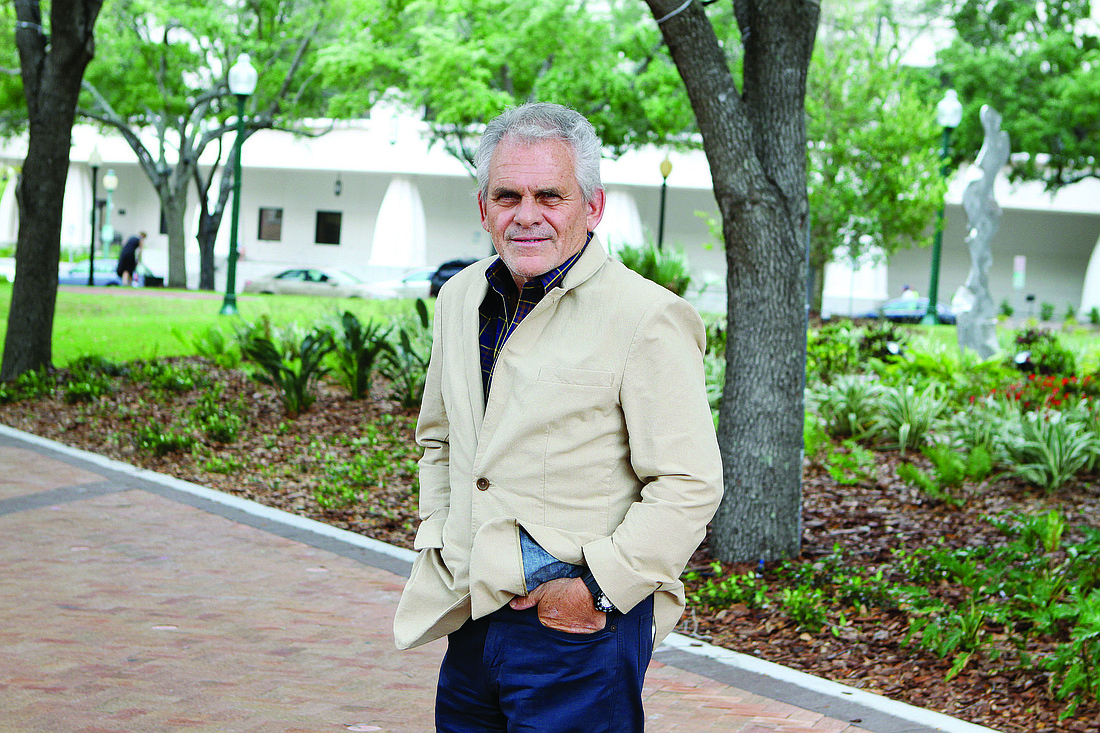- November 26, 2024
-
-
Loading

Loading

Downtown condo owners are making another push to rid Selby Five Points Park of the criminal element that many say has taken over the park.
Previous efforts to limit the number of people who can gather in the park without a special permit have failed, but the man behind the latest effort says he will not accept failure again.
“If this doesn’t go through, we’re going to take people to every city commissioner’s front yard and have a party there to see how they like it,” said Phil Grande, a downtown condo resident.
A petition drive, which Grande started, wants to dramatically change a city ordinance that allows groups of up to 75 people to gather on city property without having to obtain a special permit.
The primary goal is to stop the park feedings, which attract transients.
Several groups, such as New College students, and individuals bring food to the park to feed the homeless.
“Some of them have good hearts,” Grande said. “But some of these feeders are criminals. They’re drug dealers looking to make contacts.”
Because the feedings do not attract more than 75 people, the number currently required to obtain a permit, neighbors want to lower that threshold.
The city attorney examined an Orlando law last year that successfully lowered its level of people allowed to gather in parks to 25, but the City Commission has not yet pushed to adopt that law here (see box above).
Grande wants to take things a step further. His petition limits gatherings to 12 people, which he says is enough for a large family or a small party.
He also wants the city to certify any food that is distributed at the park.
“A vendor needs 15 permits before he can sell one hot dog, so why don’t the (homeless) feeders need permits?” he asks.
Grande insists he’s not anti-homeless. He was homeless for three years as a young man. He said he’s anti-vagrant.
“Homeless people have hard times, lost a job, have a family,” he said. “A vagrant only wants a handout. He picked that lifestyle and doesn’t want to work or contribute.”
Grande said the city needs to give vagrants a choice — either contribute to society or “get a bus ticket out of town.”
“It’s not about people who don’t look good,” he said. “Homeless people have as much right to sit on a bench as anyone. There shouldn’t be a party of 75 CEOs in that park. It’s too small.”
Grande believes the city has a chance to help the homeless.
“Everyone uses them (the homeless) at the park,” he said. “The criminal feeders want to sell them drugs. The college students don’t care about the homeless. They just want to push their anti-war agenda.”
Grande said he wants to build a facility on a piece of vacant land near Five Points that is specifically for homeless, so they can shower, clean their clothes and hang out with other homeless people.
“They know they’re not wanted at the park,” he said. “Why not give them a place where they’ll feel comfortable?”
While he considers those plans, Grande is pushing his petition. As of March 22, he had collected 57 signatures from 100 Central. He said since then he’s received dozens more signatures from that condo building and is collecting signatures from other downtown condos.
He’s already received the unanimous support of the Downtown Improvement District and will also seek it from the Downtown Sarasota Alliance.
Grande will take his petition to the City Commission, after the new commissioners take office in May.
“There’s an injustice at this park, and I’m angry that the city recognizes it, but won’t do anything about it,” he said.
Orlando’s law
More than 100 transients would gather at Orlando’s Lake Eola Park to get free food, so the city created an ordinance that required permits for any feedings that attracted more than 25 people, and only two permits can be granted per year for any one park in the city.
Food Not Bombs, the group that conducted the feedings there, as well as in Sarasota, sued Orlando, claiming the ordinance violated its First Amendment rights to assembly and free speech. The free speech, it said, was its message that everyone has a right to eat.
A lower court ruled in favor of the activist group in 2008, but an appellate court decision late last year ruled in favor of Orlando.
Contact Robin Roy at [email protected]